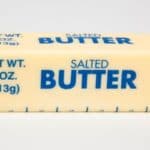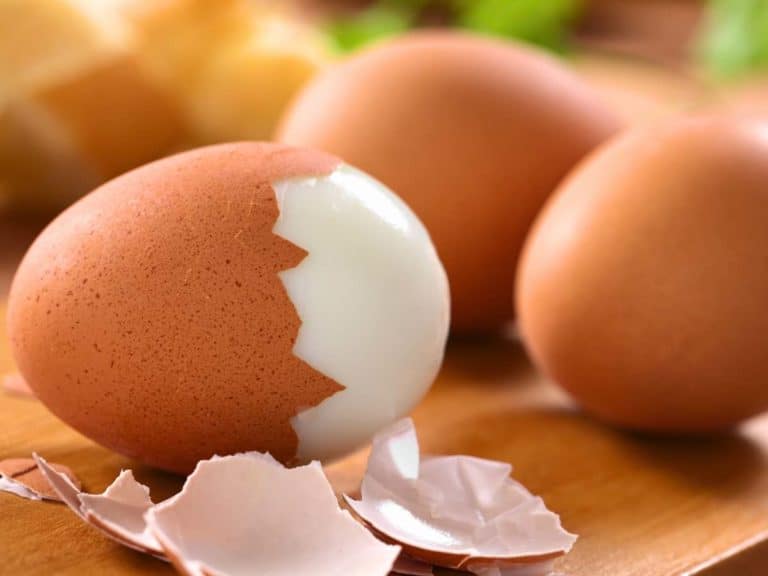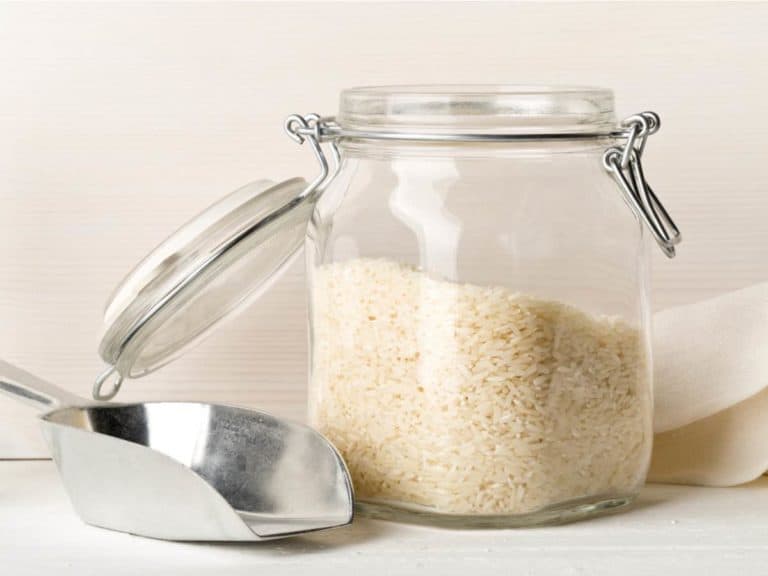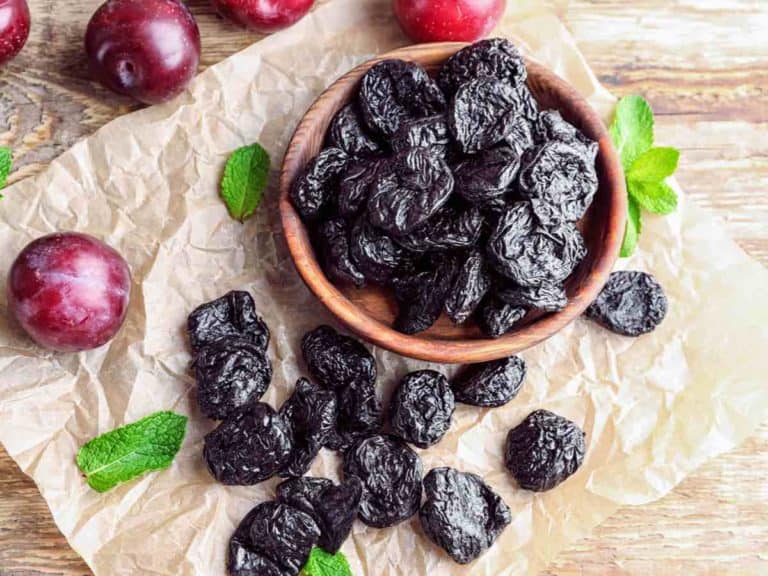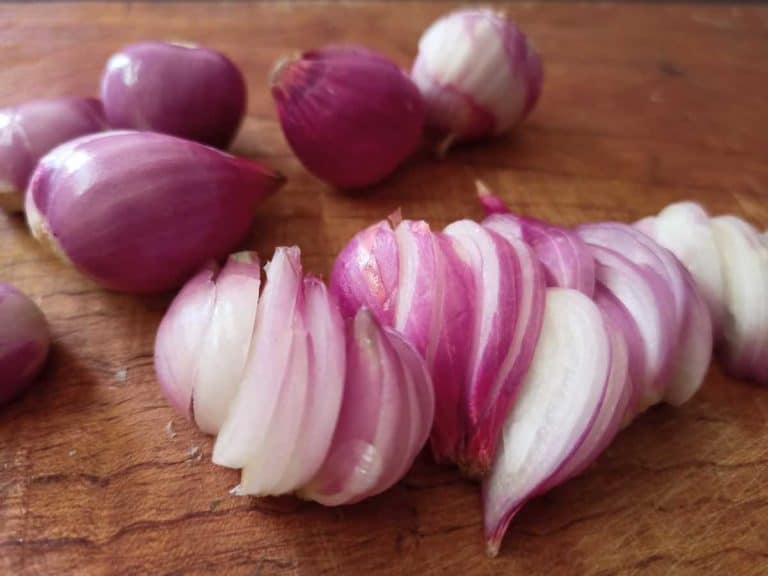What Can You Store in Mason Jars
Mason jars are some of the most versatile containers on the face of the planet. What was invented for home canning and food preservation are now also being used for storing food and holding an assortment of items — from toothbrushes to cut flowers. In this article, we will talk about all sorts of foods that you can store in mason jars.
Everything from cooking ingredients, leftovers to dehydrated fruits and veggies can be stored in mason jars. These decorative molded glass containers can also hold alcoholic drinks, fruit juices and other beverages. Mason jars are so versatile that they can be kept in the pantry, fridge and freezer.
Different food products require different storage methods.
However, the majority of them can be stored in mason jars. It is still a good idea to keep mason jars containing food items in the right places, such as in a cool and dry area or the fridge or freezer.
By taking the necessary steps, you can keep food fresh for the longest time possible.
No matter if you hate seeing food go to waste, love keeping your kitchen organized or adore the appearance of mason jars, keep on reading.
39 Things to Store in Mason Jars
With so many things that can be stored in mason jars, edible and non-edible alike, it’s likely for all sorts of ideas to be running through your mind.
After all, no other containers can be more eye-catching and all-around as these glass vessels that were invented back in the mid-1800s by a New Jersey tinsmith named John Landis Mason.
When it comes to using mason jars as storage containers for food, there may be an assortment of pressing questions that you would like to ask and get answered by mason jar pros, too.
Here are some quick answers to some of the most frequently asked questions about what can you store in mason jars…
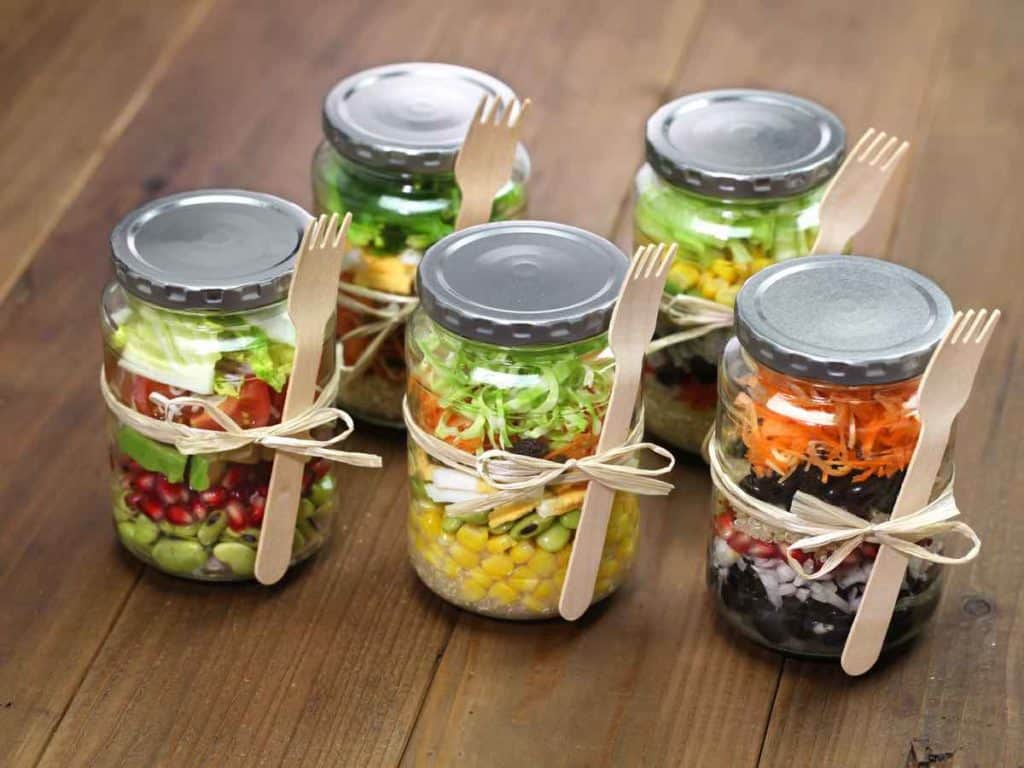
Flour
Various types of flour, from all-purpose flour to gluten-free flour, can be stored in mason jars. Other dry baking ingredients, such as cream of tartar and instant yeast, can be stored in mason jars, too.
It is a good idea to use wide-mouth mason jars that can easily accommodate measuring scoops.
Baking Soda
Baking soda absorbs moisture in the air, causing it to clump up and harden. This is why it should be placed in an airtight container such as a mason jar once its original packaging is opened.
Placing baking soda in a mason jar without the lid on is a decorative way to absorb foul smells in a room.
Sourdough Starter
A mason jar can serve as a good storage container for a sourdough starter. A big mason jar is best for the job since a sourdough starter can grow at least double in size.
It’s also a must to cover the mason jar with a piece of cloth instead of the lid. This is to keep the mason jar from exploding.
Brown Sugar
Brown sugar can be stored in a mason jar. The airtight seal prevents moisture in brown sugar from escaping, keeping it soft. Similarly, a mason jar prevents moisture in the environment from getting in, preventing brown sugar from clumping up.
Other types of sugar can be stored in mason jars, too.
Maple Syrup
Maple syrup can be transferred in a mason jar from its original packaging. It can then be stored in the fridge for up to a year.
Maple syrup in a mason jar may also be stored in the freezer — it won’t freeze and turn rock-hard.
When kept in the freezer, maple syrup has an indefinite shelf life.
Corn Syrup
There is no need to refrigerate corn syrup once it is opened.
For as long as it is kept in a cool and dry place, it will stay good for six months. It is possible to transfer corn syrup to a mason jar if the climate is hot, and then place it in the refrigerator. It may also be placed in the freezer.
Applesauce
For storing applesauce long-term, it should be placed in a sterilized mason jar.
The jar should then be boiled in water for 10 minutes. This will kill the bacteria present, keeping them from spoiling. When stored in a cool, dry place, applesauce in a mason jar can stay in tip-top shape for up to a year.
Salt
It’s a wonderful idea to store salt in a mason jar as it helps keep it from coming into contact with oxygen and moisture in the air, saving it from clumping.
There is no need to include an oxygen absorber because when the mason jar is opened, it will cause salt to absorb all the oxygen that it can.
Pink Himalayan Salt
Especially if the container that it comes in isn’t airtight, pink Himalayan salt should be transferred to another container, such as a mason jar.
In a mason jar, it can be prevented from absorbing oxygen and moisture, too. Because it doesn’t come cheap, pink Himalayan salt should be stored properly.
Coffee Beans
Since coffee beans can be damaged by air, storing it in a mason jar can help keep their unique properties intact.
It’s also vital to keep coffee beans away from light, which is why an amber mason jar is perfect for the job. When stored in a mason jar, coffee beans can stay fresh for up to a month.
Ground Coffee
A mason jar can be used for storing ground coffee. That’s because it offers protection from air, which is something that can make ground coffee go stale.
However, it is recommended to use an amber mason jar for storing ground coffee. A dark-colored mason jar can protect ground coffee from light.
Brewed Coffee
It’s not just ground coffee that can be stored in a mason jar but also brewed coffee. Brewed coffee stays good for only 30 minutes.
However, storing it in a mason jar can keep it from going bad quickly. A mason jar can also be used for storing brewed coffee in the fridge to turn it into iced coffee.
Hot Things
Mason jars can store hot things, provided that a little hot water is poured into it first to prevent sudden and extreme changes in temperature, which can cause mason jars to shatter.
Mason jars can withstand temperatures between 240°F to 250°F. However, mason jars should not be used as cookware.
Soup
Mason jars can be used as storage containers for soups. However, it is a bad idea to place a mason jar in the fridge while the soup is still hot.
That’s because it can raise the temperature in the refrigerator, putting foods already in it at risk. Soups should be cooled to room temperature first.
Bone Broth
Bone broth should be allowed to cool to room temperature before placing it in the refrigerator (where it will keep for three to four days) or freezer (where it will keep for up to six months).
When freezing, there should be at least an inch of headspace in a mason jar as liquids expand when frozen.
Chicken Broth
It’s not enough that chicken broth is stored in a mason jar — it’s also a must to refrigerate or freeze it to keep it good for days or months.
Although chicken broth can be placed in a mason jar while hot, it should be allowed to cool to room temperature before placing it in the fridge or freezer.
Vegetable Broth
When storing vegetable broth, the quality and nutrients should be preserved.
Placing it in a mason jar is ideal as it provides an airtight seal, thus keeping it and its nutrient profile from degrading. In the fridge, vegetable broth can last for a week. In the freezer, it can last for up to two months.
Ice
Ice can be stored in a mason jar. Keeping the mason jar in the freezer will keep ice from melting. Each time an ice-cold beverage is needed, taking the mason jar out of the freezer is all that needs to be done.
A little water may also be frozen in a mason jar, which can be used for chilling liquids.
Ice Cream
It is totally fine to store ice cream in mason jars. That’s because mason jars are freezer-safe and they can protect ice cream from the air.
As a matter of fact, many homemade ice cream recipes call for the use of mason jars. Mason jars are also great storage containers for store-bought ice cream.
Homemade Yogurt
Aside from storing homemade yogurt in mason jars, yogurt can also be made from scratch using mason jars. From heating milk to cooling it down, mason jars can be the perfect DIY yogurt companions.
Mason jars also make for fantastic storage containers for yogurt from the store as they are airtight.
Food in the Fridge
Food can be stored in the refrigerator using mason jars. The nicest thing about using mason jars for refrigerating food items is that they create an airtight seal, which helps prevent their contents from absorbing refrigerator odors. Mason jars also make it easy to see which food items are in them.
Food in the Freezer
Mason jars, especially newer ones, are freezer-safe. Needless to say, they can be used for storing food in the freezer.
Unfortunately, unlike Ziploc bags, excess air in a mason jar cannot be squeezed out. This can cause freezer burn as moisture in trapped air in a mason jar will form ice crystals.
How long can you store food in mason jars?
Perishable foods can be stored in mason jars from three days to two weeks, provided that the mason jars containing them are refrigerated.
When placed in the freezer, perishable foods in mason jars can keep for one to six months. Some can be kept in the freezer for an indefinite amount of time.
Can you use mason jars in the microwave?
Newly-made mason jars have a microwave-safe symbol on them, which means that they can be used for reheating various foods and drinks in the microwave trouble-free.
However, the metal lids should not go in the microwave. Take note that a mason jar can become very hot to the touch, so be very careful.
Leftovers
Storing leftovers in mason jars allows them to stay fresh longer in the refrigerator. Mason jars provide an airtight seal, which helps slow down spoilage. Opt for wide-mouth mason jars as they make it easy to get leftovers in and out of them. Before refrigerating, allow leftovers to cool completely.
How long can you store leftovers in mason jars?
When stored in the refrigerator, leftovers in mason jars can keep anywhere from three to four days. Freezing leftovers in mason jars, on the other hand, allows them to keep for three to four long months.
If there is an obvious change in the appearance and smell, leftovers should be disposed of ASAP.
Fruit Juice
Because a mason jar is made of glass, it serves as the perfect storage for fruit juice. The acidity of fruit juice won’t react chemically with glass. The airtight seal also helps slow down oxidation. When stored in the refrigerator, fruit juice in a mason jar can stay fresh for two to three days.
Tomato Sauce
The acidity of tomato sauce won’t react with mason jars, which is why they are the ideal storage containers for it. For tomato sauce to last for a long time, tomato sauce-containing mason jars should be boiled in water for 10 minutes.
It can keep for one year when stored in a cool and dry place.
Salsa
Homemade salsa can be kept fresh in mason jars for 12 to 18 months. This is provided that they are canned properly and stored in a cool, dry place.
Store-bought salsa that’s been opened can be stored in mason jars and refrigerated for up to two weeks. If warm, salsa should first be allowed to cool.
Alcohol
Various alcoholic drinks like gin and whiskey can be stored in mason jars. Due to the airtight seal, they can be protected from air — oxygen can affect the flavor and aroma of alcohol.
However, alcohol-containing mason jars should be stored in a dark area. Dark-colored mason jars may also be used.
Homemade Wine
Mason jars are excellent storage containers for fermented food products, which is why they can be used for storing homemade wine. Mason jars protect homemade wine from coming into contact with oxygen.
Still, it is important to store mason jars containing homemade wine away from light and heat.
Ferment Wine
One of the many uses of a mason jar is for fermenting various food products. This is why it can be used for fermenting grape juice to turn it into homemade wine.
What’s really great about a mason jar is that it enables one to easily inspect how the process of fermenting wine at home is progressing.
Beer
While mason jars can keep air from getting in, they cannot hold in carbonation. It’s for this reason exactly why beer cannot be stored in mason jars. Otherwise, it is possible for the lid to pop out or the glass to shatter.
However, a mason jar is perfect for serving ice-cold beer most especially.
Carbonated Beverages
Because mason jars may be airtight but cannot tolerate carbonation, it is not safe to use them as storage containers for carbonated beverages. Either their lids will pop out, or their bodies will blow apart.
However, mason jars make for excellent serving containers for cold carbonated beverages.
Baby Food
Homemade baby food can be stored in a mason jar safely. The material it’s made of does not contain any chemical that may leach into baby food, including something acidic. To keep the baby out of harm’s way, a mason jar should be sterilized first before it’s used as a storage container for baby food.
Sterilize a mason jar for baby use
A mason jar can withstand temperatures of up to 250°F. At sea level, boiling water has a temperature of 212°F only. This means that it is perfectly safe to submerge a mason jar in boiling water to get rid of microorganisms.
For best results, a mason jar should be sterilized for at least 10 minutes.
Breast Milk
Unlike commercially available breast milk storage bags, mason jars can be used over and over again as storage containers for breast milk. Breast milk stored in a mason jar can stay fresh in the fridge for up to four days. On the other hand, it can keep for six months to one year in the freezer.
Cooking Oil
Because cooking oil such as canola oil, corn oil or palm oil needs to be protected from oxygen, the airtight seal of mason jars make them excellent oil storage containers. Aside from oxygen, light is also bad for cooking oil. This is why the best mason jar for cooking oil is amber or dark-colored.
Healthy Vegetable Oil
Olive oil, sunflower oil, flaxseed oil, coconut oil — these and many other oils contain antioxidants and nutrients that can be damaged by air exposure.
Due to this, they should be stored in a mason jar with an airtight seal. Go for a mason jar with a dark color to protect vegetable oil from light.
Bacon Grease
Bacon grease can be stored in a mason jar. It’s best to store it in a dark-colored mason jar as light can make it go rancid faster than usual. When placed in a cool, dry place, bacon grease will keep up to six months. It can last for a few more months in the fridge, and indefinitely in the freezer.
Dehydrated Food
Before storing dehydrated food in a mason jar, see to it that the mason jar is clean. Otherwise, dehydrated food may have a shorter shelf life. It’s also a must to check that the mason jar has an airtight seal to keep the contents from coming into contact with air, which can shorten their lifespan.
Dry Goods
Consider storing dry goods in mason jars that are amber or dark in color. This is to protect them from light, something that can affect their quality. Mason jars with dry goods should be placed in a cool, dry place. Many dry goods can also be stored in the fridge or freezer for longer shelf life.
Dry Pasta
Mason jars can serve as storage containers for dry pasta as they can prevent contact with both air and moisture effectively. Cooked pasta can be placed in a mason jar, too, and then stored in the fridge where it can keep for up to five days. Before refrigerating, allow cooked pasta to cool first.
Fruits
Sliced fruits can be placed in mason jars and then stored in the fridge for up to five days or in the freezer for up to a year. To make sliced fruits last for up to five long months, it is a great idea to dry them with the use of a food dehydrator. Afterward, they should be stored in mason jars.
Vegetables
Cooked vegetables can be stored in mason jars and then kept in the refrigerator or freezer to extend the shelf life. Before doing so, cooked vegetables should be cooled to room temperature first. Here’s a step that may be taken to make vegetables last so much longer in mason jars: dehydrate them.
Herbs
In a mason jar, fresh herbs can stay in great shape for two to three weeks. On the other hand, dried herbs in a mason jar can remain good for up to three years. Fresh and dried spices can be stored in mason jars, too. Just see to it that the mason jars are kept in a cool and dry place at all times.
Water
Mason jars are made of glass, which is why they make for excellent storage containers for water long term. They are not like most plastic counterparts that can contaminate water with some of their compounds. However, go for plastic mason jar lids to keep water from being contaminated with rust.
Taking Good Care of Mason Jars
Mason jars can take good care of your various food storage needs. But for them to be able to do that, you should take good care of these versatile and decorative storage containers.
Especially because they are out of glass, it is a must that you treat them with the love and care that they greatly require from you.
The good news is that mason jars are not that difficult to maintain and keep. That’s because they can be easily cleaned as much as they can be easily stored when not in use.
Here are some of the most important things that you need to know about cleaning and storing mason jars…
How should I clean mason jars?
Mason jars can be cleaned by using warm soapy water. They can also be placed in the dishwasher. For canning purposes, however, mason jars should be sterilized beforehand to kill any present bacteria.
To sterilize mason jars properly, they should be simmered in boiling water for at least 10 minutes.
How should I clean mason jar lids?
Unlike the jars themselves, mason jar lids tend to absorb odor. To remove odor and debris, two tablespoons of baking soda should be placed in the lids, and then topped off with white vinegar.
After the fizzing has subsided, mason jar lids should be cleaned with warm soapy water and then rinsed well.
How to store mason jars when not in use
When not in use, mason jars are best stored in a box. The box should then be placed low to the ground, like the lowest shelf in a closet. This is to keep at bay accidents that can cause the mason jars to break. Mason jars can be stored with or without the lids on.
Before storing, clean and dry them.
The following are some other quick tips on storing mason jars that are not in use:
- Store mason jars with missing lids upside down to keep them from collecting dust and dirt.
- If your mason jars came with their own separate boxes, it is recommended to store them in their own boxes.
- Buy or make your own box dividers, and use them to keep empty mason jars from clinking together.
- Use crinkled up newspaper as padding between mason jars if box dividers are not available.
- Small mason jars are best wrapped in crinkled up newspaper in order to give them utmost protection.
- It’s a good idea to store mason jars in pretty much the same size and shape in the same box.
- Label the boxes if there are several of them to save time and energy when looking for a specific mason jar.
- Check that the shelf on which you will store mason jar boxes are sturdy and can support a lot of weight.
- Avoid stacking boxes containing mason jars more than two to three boxes high.
How to store mason jar lids when not in use
It’s a must to thoroughly clean mason jar lids before storing them. Mason jars can be stored with the lids on, provided that they and the lids are completely dry.
The rings, which can harbor bacteria, should be removed beforehand. This is especially true if the mason jars are being used for canning.
Can I reuse mason jar lids?
Reusing mason jar lids for storing food items is perfectly fine. However, if mason jars are used for canning, the lids should not be reused. That’s because the seal is spent during the processing. It will no longer recover for another processing. For canning, replace mason jar lids each time.
Takeaway
If it’s perishable and can fit in a mason jar, then you can store it in this molded glass that comes in all sorts of sizes, shapes and colors.
Because it is a refrigerator- and freezer-safe, a mason jar can also be used as a storage container for anything that needs to be refrigerated or frozen to extend its shelf life considerably.
You can also use a mason jar for reheating food or beverages in the microwave, although it’s not a good idea to use it as cookware just like what many on social media are doing.
And in some instances, you can also serve an assortment of foods and drinks in mason jars, including especially desserts, preserves, and healthy beverages.
So, if there is something that you need to store or serve, all you have to do is reach for a mason jar!
